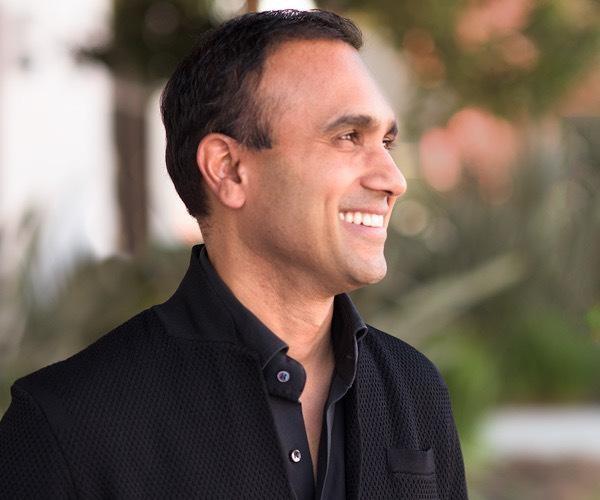
Munjal Shah's Hippocratic AI Reaches $500 Million Valuation, Partners With Nvidia on Healthcare AI Agents
Munjal Shah's startup uses evidence-based medical research and reinforcement learning from healthcare workers to train its GenAI healthcare agents.
Hippocratic AI, a healthcare-focused generative artificial intelligence startup founded in 2023, has achieved a $500 million valuation following a $53 million Series A funding round. The Palo Alto, California-based company, founded by Munjal Shah, is at the forefront of developing generative AI agents that handle a wide range of nondiagnostic tasks that can be offloaded from human medical staff, who are often stretched due to widespread understaffing. This valuation milestone comes alongside a newly announced partnership with tech giant Nvidia aimed at reducing latency, which can render an even better patient experience by GenAI healthcare agents.
Hippocratic AI's rapid ascent reflects a growing trend in Silicon Valley. After the boom in general-purpose large language models like ChatGPT and Claude, investors increasingly seek opportunities in AI applications tailored for specific industry use cases. This shift comes as major tech companies like Microsoft, Google, Apple, and Amazon have dominated investments in broader AI model developers such as OpenAI and Anthropic.
The funding round was co-led by venture firms General Catalyst and Premji Invest, with participation from notable investors including Andreessen Horowitz and SV Angel. This brings Hippocratic AI's total funding to $120 million.
Safety Determined by Clinicians
CEO Munjal Shah emphasized a cautious approach to deployment. "We're going to sit here until it's safe, as determined by clinicians," he said in a recent statement, underlining the company's adherence to the Hippocratic Oath that inspired its name (“do no harm”) and commitment to safety in healthcare AI applications.
This stance is crucial, given the potential risks associated with AI “hallucinations,” or incorrect outputs in medical contexts. Munjal Shah and Hippocratic AI have steered away from using AI for diagnosis and instead focus on low-risk, nondiagnostic applications like postdischarge follow-up, chronic care management, patient navigation, and dietitian services.
Hippocratic AI trains its model on a vast collection of evidence-based data, including clinical care plans, healthcare regulatory documents, medical manuals, and drug databases. This specialized training aims to create AI agents capable of performing a variety of healthcare tasks with very high accuracy. They already demonstrate effective performance in areas such as identifying condition-specific disallowed over-the-counter medications, correctly comparing a lab value to a reference range, and detecting toxic dosages of over-the-counter drugs.
The company stresses the importance of training the models using reinforcement learning from human feedback from healthcare workers. Its first two phases of testing have involved over 1,000 registered nurses and 100 licensed physicians in the United States. The third phase, which is now beginning, will expand testing to 5,000 licensed nurses, 500 licensed physicians, and the company's health system partners.
The Nvidia Partnership
The partnership with Nvidia marks a significant step forward for Hippocratic AI. It aims to leverage Nvidia's powerful H100 Tensor Core GPUs to power Hippocratic's AI agents.
Kimberly Powell, Nvidia's VP of Healthcare, highlighted the importance of this development, explaining, "Voice-based digital agents powered by generative AI can usher in an age of abundance in healthcare, but only if the technology responds to patients as a human would."
A key focus of the Nvidia partnership is reducing the latency of AI agents, enabling real-time responses to patients. Munjal Shah pointed out a critical limitation of many general AI models is that they can take up to nine seconds to produce an audio response — a delay that would be unacceptable in patient interactions.
Addressing a Worker Shortage
Hippocratic AI is positioning its technology as a way of addressing a global healthcare worker shortage. The World Health Organization estimates a shortfall of 10 million health workers by 2030.
According to Munjal Shah, the goal is not to replace human healthcare workers with AI, but to augment their capabilities by automating time-consuming, low-risk tasks, freeing up humans to do what they do best while increasing access to basic services that improve patient outcomes.
Hippocratic AI has also built in human-based risk mitigation strategies, with guardrails to involve human supervisors when necessary, and oversight groups including a safety governance council and advisory councils composed of physicians and nurses from leading health institutions.
Thus far, the company has secured partnerships with over 40 healthcare organizations, including HonorHealth, Cincinnati Children's, OhioHealth, and Universal Health Services, among others. These partnerships will be crucial for the extensive testing and real-world validation of Hippocratic AI's technology.
The success of Hippocratic AI and similar ventures could significantly impact the future of healthcare, potentially improving access to care and addressing staffing shortages.
Munjal Shah’s Hippocratic AI is effectively progressing through its safety testing phases and moving closer to real-world deployment, and the healthcare and tech communities will be watching closely. The outcomes of Hippocratic AI's efforts could provide valuable insights into the potential and limitations of AI in healthcare, shaping the industry's approach to integrating these technologies in the years to come.

Legal Disclaimer:
MENAFN provides the
information “as is” without warranty of any kind. We do not accept
any responsibility or liability for the accuracy, content, images,
videos, licenses, completeness, legality, or reliability of the information
contained in this article. If you have any complaints or copyright
issues related to this article, kindly contact the provider above.


















Comments
No comment